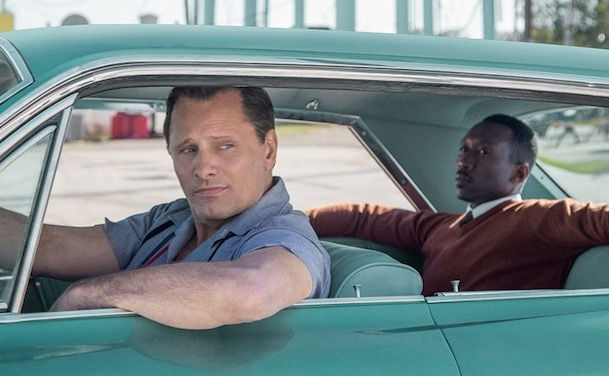How magical is Green Book?
- Charlie Fountaine

- Apr 28, 2019
- 3 min read

If you followed the 2019 movie awards season you may have caught wind of some controversy swirling around the proverbial “magical negro,” a term popularized by director Spike Lee referring derisively to the Hollywood trope of black supporting characters who are reduced to guiding the growth of white characters. Think Notre Dame’s groundskeeper in Rudy, the “super-duper” (in Lee’s words) death-row inmate John Coffey in The Green Mile, or Bagger Vance in… The Legend of Bagger Vance. “Blacks are getting lynched left and right, and [Bagger Vance is] more concerned about improving Matt Damon’s golf swing!” Lee once said.
Enter Academy Award-winner Green Book, the based-on-a true story about Tony “Lip” Vallelonga, a blue-collar Italian American hired by African American pianist Dr. Don Shirley to chauffeur him on a concert tour through the deep south in 1962. Named for the “Negro Motorists’” guide to traveling safely through the U.S., Green Book flips the Driving Miss Daisy convention on its head with a pairing too eccentric to be drawn from anything but real life. Shirley — wealthy, educated — finds himself teaching Lip diction and letter-writing, clarifying phrases like “in what capacity” and sermonizing on the indignity of playing dice in the street while Lip, who pays his rent bouncing punks from the Copa and trashes his glassware after seeing it used by black repairmen, has some growing to do.
The film boldly plays Lip’s racism for laughs, forgiving him as a product of his environment while treating acts like his refusal to leave his wallet alone with Shirley as boorish childishness, not hate-filled animus. Credit Vigo Mortensen's affable performance of a man who in real life got his moniker for his ability to talk his way out of jams. By trip’s end, after talking Shirley out of some hot ones (in the role of “white savior,” another Hollywood trope), witnessing all the bathrooms Shirley can’t use, suits he can’t try on and restaurants he can’t eat at, and even catching a taste of prejudice himself, Lip sees his allegiance grow from professional to personal — he invites Shirley in for Christmas Eve dinner with no thought about the glassware.
But Lip’s growth is at most a baby step, authentic to the times. The richer story is the unlikely connection forged when individuals in a strange land are stripped of their tribal comforts. Race is no factor as Shirley (played with dignified understatement by Mahershala Ali) and Lip bicker over a stolen jade rock for laughs that would make Felix and Oscar proud. And while Lip is seen repeatedly rejecting overtures from the seedier side of his own heritage (read: the mafia), Shirley’s disaffection from the black community runs even deeper, hinted at in his naiveté of black pop music and cemented by the reveal of his homosexuality: “I’m not accepted by my own people because I’m not like them either!” After a crippled car leaves the polished Shirley gawked at on the side of the road by a field of black workers harkening images of slavery, only his buzzing piano performance for a raucous local crowd begins to bridge the gap. Again, baby steps.
Exactly how much of Green Book is true is in dispute. Shirley’s brother has attacked the movie as a “symphony of lies," while Nick Vallelonga, Lip’s real-life son who co-wrote the screenplay, maintains that every scene happened and Shirley dictated his portrayal himself before his death. Whatever the truth, while Shirley the character may only be a supporting role, he’s certainly more than just a magical stereotype.
Comments